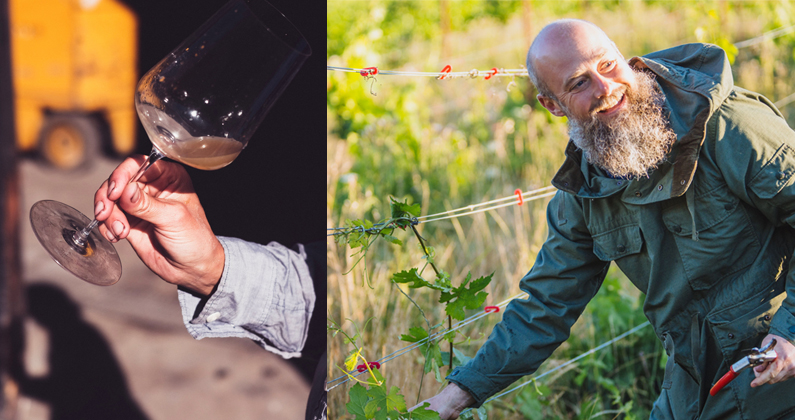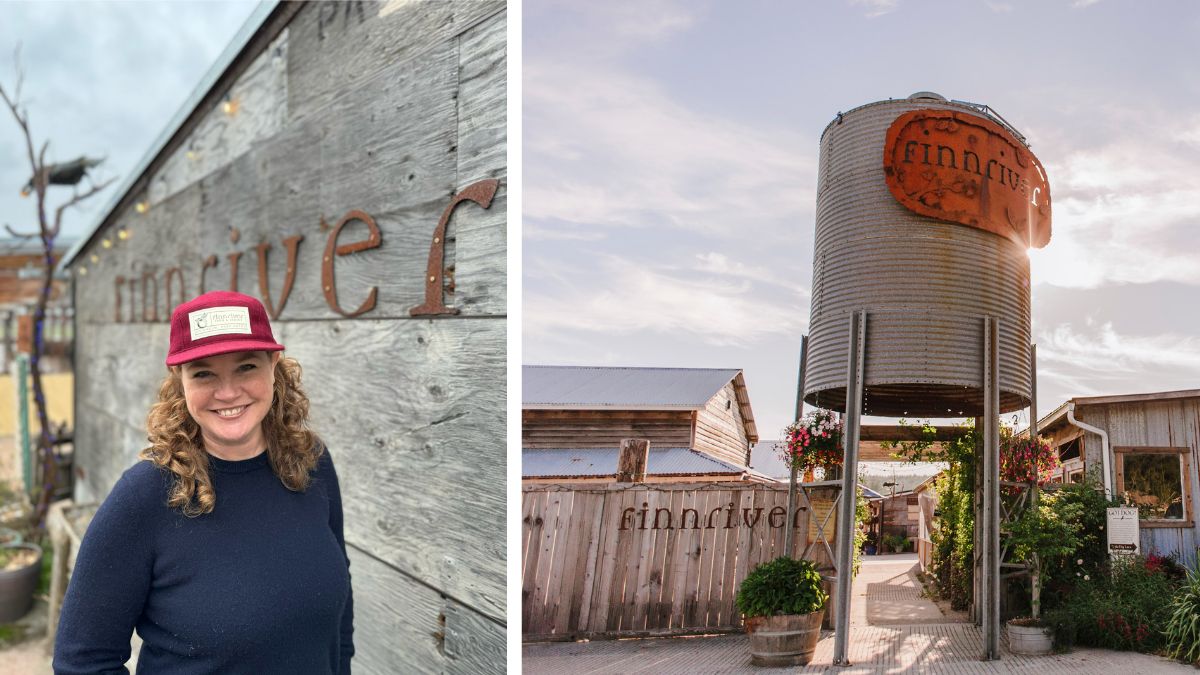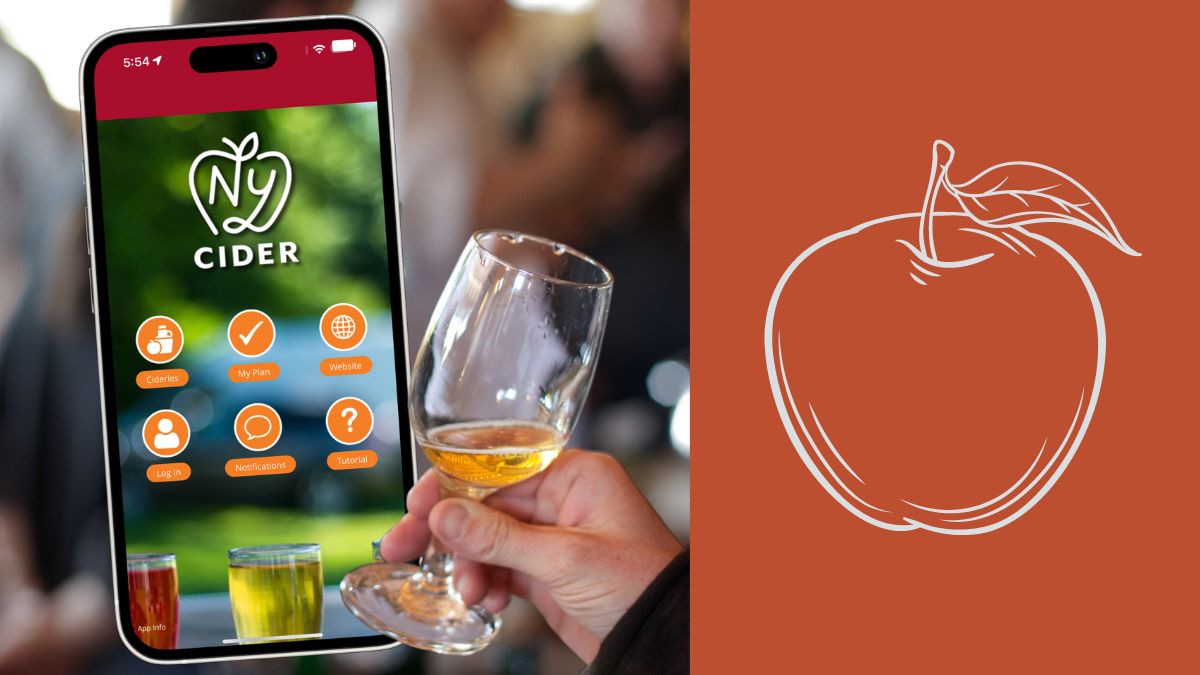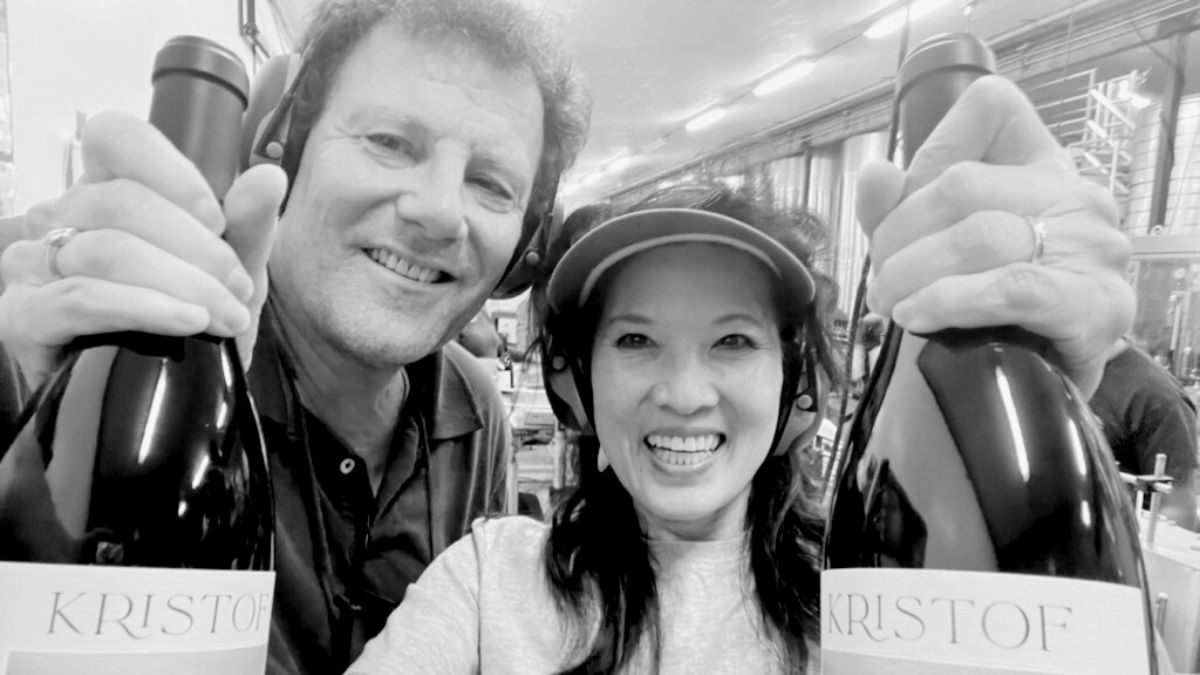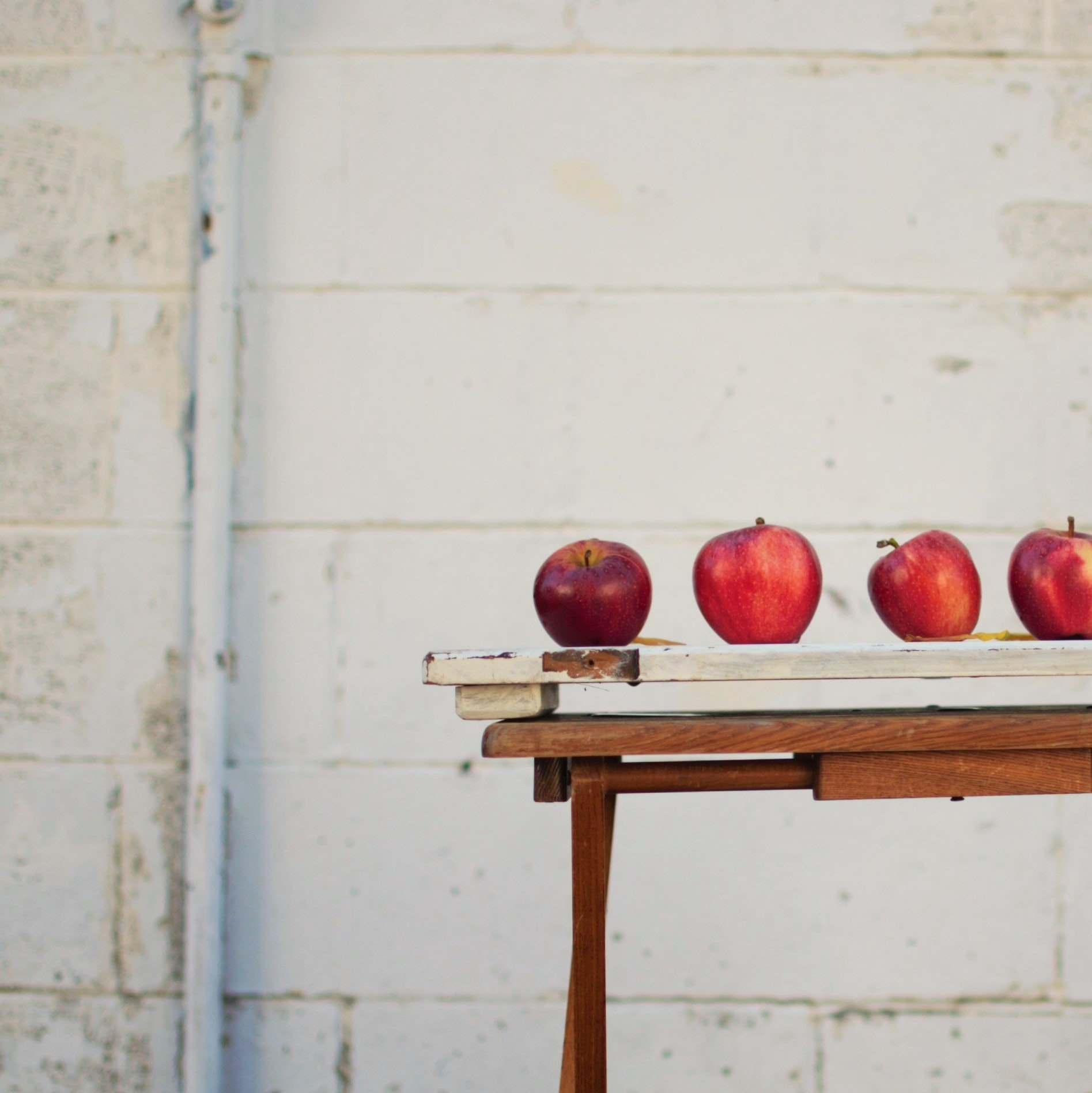To be guided by nature: this is Nate Ready’s modus operandi when it comes to Floréal Cider. With fruit cultivated from biodynamic farming methods, the cider is comprised of apples from living soils. A master sommelier and proponent for natural farming, Ready’s journey to becoming Oregon’s authority in organic wine and cidermaking began 15 years ago on a trip to the slopes of Mount Etna, the heart of Italian wine country and home to some of Sicily’s most renowned wine grapes.
“Being in the site of origins for viticulture and winemaking in Europe was the first time I was in touch with the inspiration of the land,” Ready says. “At that point, my trajectory changed and I knew I wanted to work more in agriculture.”
Ready — along with his business partner, China Tresemer — is the mover and shaker behind the Hood River Valley’s organic vineyard and tasting room, Hiyu Wine Farm. Just like the wines he produces, his goal with Floréal Cider was to illustrate an intimate connection with its place of origin.
A PARTNERSHIP FOR THE AGES
To amend what is so often a detached relationship between the farmer and the cidercrafter, Ready collaborated with Mt. Hood Organic Farms to create Floréal. A family-owned and -operated biodynamic orchard, Mt. Hood Organic Farms is located at the base of its namesake, and headed by Brady and John Jacobsen — who farm the apples used in every batch of Floréal.
The Jacobsen family use biodynamic farming techniques to grow the apples on its property, which are then purchased by Ready who crafts the fruit into cider. According to Ready, this collaboration between farmer and cider-crafter is a different model from the typical interaction between the makers and growers.
“In so many instances, most of the profit comes down the road after the cider is sold at a market, then the farmer either breaks even or takes a loss,” he explains. “In these cases, the apple grower doesn’t have a strong relationship with the product and where it ends up going.”
Together, Ready and the Jacobsens are involved in every part of the cidermaking processes, even splitting the costs and profits 50-50.
Crafting each batch of Floréal is no easy task. After fermenting in barrels for a year, the process then calls for fermented juice from the next vintage to naturally ferment the cider again — this time in bottles — breeding its gentle, creamy, Champagne-esque texture. Foregoing the second fermentation, or using forced carbonation is less laborious, but Ready believes it would strip the cider of its fine bubbles and gentler mouthfeel. “There is a purity to the flavor that wouldn’t exist without this process,” he adds.
At 2,100 feet above sea level, the apples from the base of Mount Hood attain unusually high sugars, and Ready feels they almost resemble grapes in their composition. The absence of any additions — sugars, water, acid or yeast — is the reason for Floréal’s noteworthy, bona fide flavor. Nothing about this cider is artificial, it inherits its flavor from its only ingredient: apples cultivated from the orchards of Mount Hood.
GETTING BACK TO THE LAND
The practice of biodynamic agriculture was first ideologized in a series of lectures from Dr. Rudolph Steiner in the 1920. In response to a number of farmers’ growing concern of industrialized agriculture’s deterioration on the health of their crops, the heart of Steiner’s teachings were meant to bring the farmer back to an organic relationship with the land. Denouncing the use of artificial and chemical farming methods, he advocated the practice of connecting agriculturalists to deeper influences, tuning in with the way the earth is reacting with the rest of the solar system,
Biodynamic farming has historical roots from before the industrial revolution, when farmers used to have to rely on being in touch with the rhythms and cycles of plants and animals and the way they interacted, to produce quality crops.
Because of the skepticism behind organic farming, Ready says it was important for Floréal Cider to be a model for other ciders. “One of our big goals is conversion in the Hood River Valley to organics, we want to encourage people to stay away from the use of herbicides, and pesticides,” he says.
In the wine world, it is more common to know the exact origins behind each bottle, with cider, he says, it’s a different story. “In the sense that cider relates more closely to beer, in the beer world there’s very little awareness,” Ready explains. “With [Floréal], people will know exactly where their cider comes from.”
Floréal Cider is available for purchase on Hiyu Wine Farm’s website, or for a fuller experience of Mt. Hood organics, visit the farm and tasting room and reserve a dinner or tour.
“We hope people see that our model of a sustainable relationship between the farmer, the cider-crafter and the environment actually produces more complexity, flavor and texture,” Ready says.

